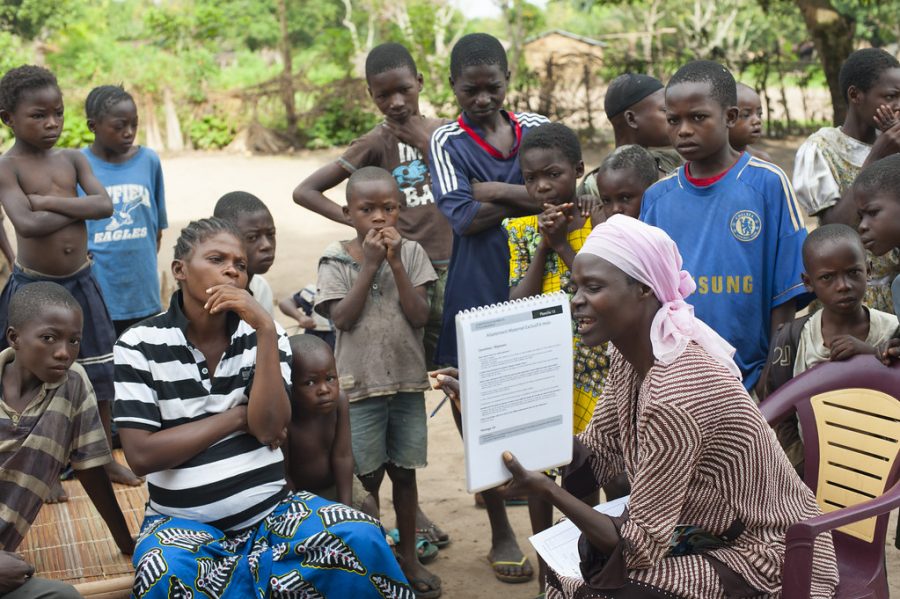Humanitarian crises pose a threat to millions worldwide
Citizens of the Democratic Republic of Congo are fighting against epidemics and malnutrition.
March 10, 2021
The worldwide humanitarian crisis was at its peak at the end of 2020, surpassing over 168 million people in need of aid. During the first few months of 2021, over 235 million people were in need of humanitarian support. According to UNFoundation, there has been a 40% increase since last year, in regards to the number of people who are living in unhealthy conditions, encountering a lack of food or are facing conflict regarding political standpoint.
“The humanitarian crisis is a travesty of social injustice,” geosystems teacher Anne Fenton said. “This crisis clearly shows the line between the have and the have-nots, whether that be access to resources or power.”
COVID-19 has escalated the impact of the crisis increasing starvation and death rates. Some of the hardest-hit places include the Democratic Republic of Congo (DRC), Burkina Faso and Ethiopia.
“I believe COVID-19 has greatly impacted all countries and communities at different levels,” social worker Dana Condemi said. “Economies have been shattered and millions of people have died.”
Out of 87 million people, 20% of the DRC’s population need accommodations in medicine and creation of food hotspots. Currently, the country is simultaneously experiencing measles, ebola outbreaks and cholera. According to ReliefWeb, the existing vulnerabilities have made it complicated for the United Nations (UN) to assist the DRC, leading to food insecurity and large-scale forced displacement.
“The Democratic Republic of Congo had been dealing with multiple epidemics in the 2019-2020 period of time,” Condemi said. “COVID-19 has also impacted how organizations like WHO and the UN who are unable to respond to world needs.”
The start of 2021 has presented a new challenge for Burkina Faso: famine. Due to COVID-19, famine conditions in Burkina Faso have nearly tripled with 3.3 million starving. According to TheNewHumanitarian, long-standing food hotspots have been removed and relocated, making it difficult for aid workers to reach those in need. Lockdowns across Burkina Faso have decreased employment, thus contributing to a slower economy and deficient levels of hunger.
“Any disruption to food systems in places where famine has long [been] on the precipice because of distribution of food is heartbreaking and frustrating,” Fenton said.
Conflict and governmental pressure rose in Ethiopia’s Tigray region. On Nov. 4, 2020, political tensions emerged between the Ethiopian government and the Tigray’s People’s Liberation Front (TPLF), a political party that controls the Tigray region in Ethiopia. Abiy Ahmed, the Ethiopian prime minister, blamed the TPLF for an attack on the federal base in Tigray. This hostility resulted in over 400,000 refugees fleeing across the Ethiopian border to Sudan during 2021, causing over 52,000 people to be internally displaced.
“Children [can be] tremendously affected [by this displacement] – lack of schooling, minimal access to food, possibility of one parent having to leave to find work,” Fenton said.
Knock-off effects of the pandemic have also created a detrimental impact on women’s lives. In countries like South Sudan and Mexico, women are forced into lockdowns with their abusers, without access to support services. According to UNWomen, violence against women in 2021 has risen to 25% as a result of COVID-19. Furthermore, maternal mortality rates have increased with clinics closing due to a lack of funding.
“Economic independence is a critical factor in violence prevention and if and when a woman decides to leave a violent relationship,” Condemi said. “Travel restrictions, public health restrictions [such as] shelter availability, school and child care closures contribute to the decisions an individual has to leave their abuser.”
Individuals across the world are facing inimical conditions. To address these worldwide problems, the UN has planned a Food Systems Summit in 2021. This is a set of actions requiring individuals to take action to transform the food systems. Using this approach, the UN hopes to solve the humanitarian crisis the world encounters.
“I do believe that we should help those people who don’t have ready access to food and live in places more directly affected by [many of] our actions in creating a climate crisis,” Fenton said. We have technology and money to help – so why don’t we?”



